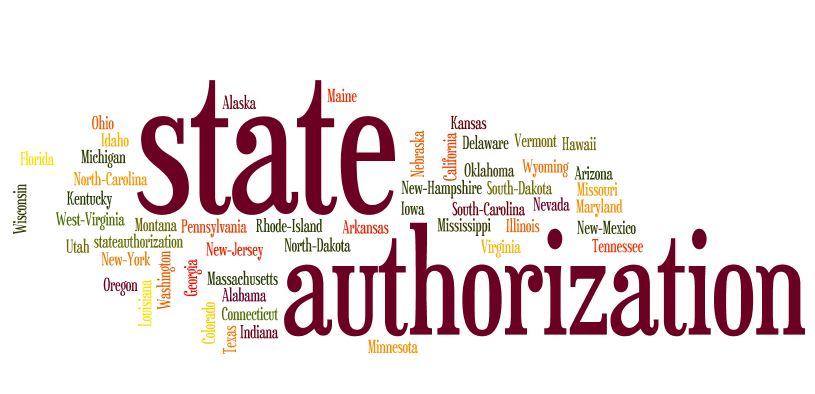Nine Organizations Partner on Official Comments for State Authorization Regulations
Published by: WCET | 8/25/2016
Tags: Distance Education, Financial Aid, Reciprocity, Regulation, SARA, State Authorization, U.S. Department Of Education
Published by: WCET | 8/25/2016
Tags: Distance Education, Financial Aid, Reciprocity, Regulation, SARA, State Authorization, U.S. Department Of Education
Nine higher education organizations partnered to submit comments to the Department of Education regarding its proposed state authorization regulations for distance education. By working unison, we provided a strong and consistent single voice in making recommendations to the Department.
Contributing to the letter are six distance learning associations with total memberships of over 1,000 institutions:
We were pleased to be joined by the following partners who provided additional expertise and perspectives:

The letter indicates support for many of the recommended regulations. All of the partners support increased information for students and improved consumer protections. Some of the proposed regulations need clarifications for institutions to understand how to comply. Other proposed rules simply fall short in meeting the Department’s own goals.
Our comments focused on:
Thank you to all our partners who provide great advice and support throughout the process.
We also submitted a second set of comments that reflected the interests of the WCET State Authorization Network (SAN) members. We expressed support for the issues (listed above) that were raised in the joint letter. We also included several requests for clarification that were submitted by WCET SAN members. They had very good questions about the meaning of some terms or how they might be enforced.
The Department will consider the comments and has said that it will issue a final regulation by the end of the calendar year. If the final regulation is released before November 1, then the regulations become law on July 1, 2017. If they wait until November or December, then they become law on July 1, 2018. At its discretion, the Department may announce that it will delay enforcement of parts of the regulations until a later date.
If you are not in compliance as an institution or for your professional programs in a state in which you wish to enroll students, don’t hesitate to do so. Avoid the rush. You could get trampled.
The state regulators or licensing boards have no incentive to hurry your application to meet a federal requirement. They do all they can, but they often have minimal staffing.
Happy authorizing!!
Cheryl Dowd
Director
WCET State Authorization

Russ Poulin
Director, Policy and Analysis
WCET – WICHE Cooperative for Educational Technologies
Support our work. Join WCET.
2 replies on “Nine Organizations Partner on Official Comments for State Authorization Regulations”
[…] final regulation has yet to be released. See our comments on the proposed regulation. Part of me thinks that they will release it to force the Trump administration to kill it. On the […]
[…] our opinion had not been popular in some higher education circles, we have been consistent (see our joint comments with eight other organizations to the Department from August 2016) in supporting the concept that being approved in each state should be a condition to obtaining […]